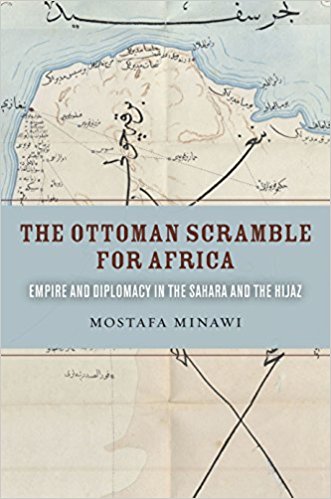
The Ottoman Scramble for Africa: Empire and Diplomacy in the Sahara and the Hijaz
Tom Verde
Mostafa Minawi
2016, Stanford UP, 978-0-80479-514-2, $24 pb.
During the late-19th-century European rush for Africa’s resources, Ottoman Sultan Abdulhamid II felt that his “empire had to participate in the new system of imperialism or risk becoming a ‘fair target’ of European colonialism” itself. He focused on the eastern Sahara and the Lake Chad basin—sections of Nigeria, Niger, Chad, Cameroon, Sudan and Libya, where Ottoman influence dated to the 16th century. Parts of the Red Sea coast of Arabia also figured in the effort. The author accesses the history of the “Ottoman expansionist dream” for Africa via archival records and reports of Ottoman officials, in particular the travelogues of Sadik al-Mouayad Azmzade, an officer from Damascus who, reluctantly, scouted the proposed colonial regions. (His description of the Sahara: an “empty, deep, horizon on fire!”) While the initiative “gave Istanbul an opportunity to strengthen its north-south trans-Saharan relations at a critical time,” the dream ultimately resulted in “unfulfilled goals and unfinished plans.” Still, this book enjoins readers to rethink the “Sick Man of Europe” as a vital and determined player in the era’s colonial gamesmanship.
You may also be interested in...

Child's Play: Reconstructing Everyday Life of Youth in Ancient Egypt
Egyptologist Amandine Marshall observes how the depictions of children created by Ancient Egyptians seldom illustrated their actual lives.
Naguib Mahfouz Medal for Literature Winner Gives Voice to Marginalized
“No one else will be destined to write a life story as squalid as mine, although it’s all true,” comments the elusive protagonist of Algerian author Ahmed Taibaoui’s noir novel.
Nomadic Chieftain’s Biography Unveils Dynamics of Colonial Expansion
Historian Tetsu Akiyama challenges the narrative that the Kyrgyz were a “static and monotonous ‘traditional’ society’” destined to be subsumed.